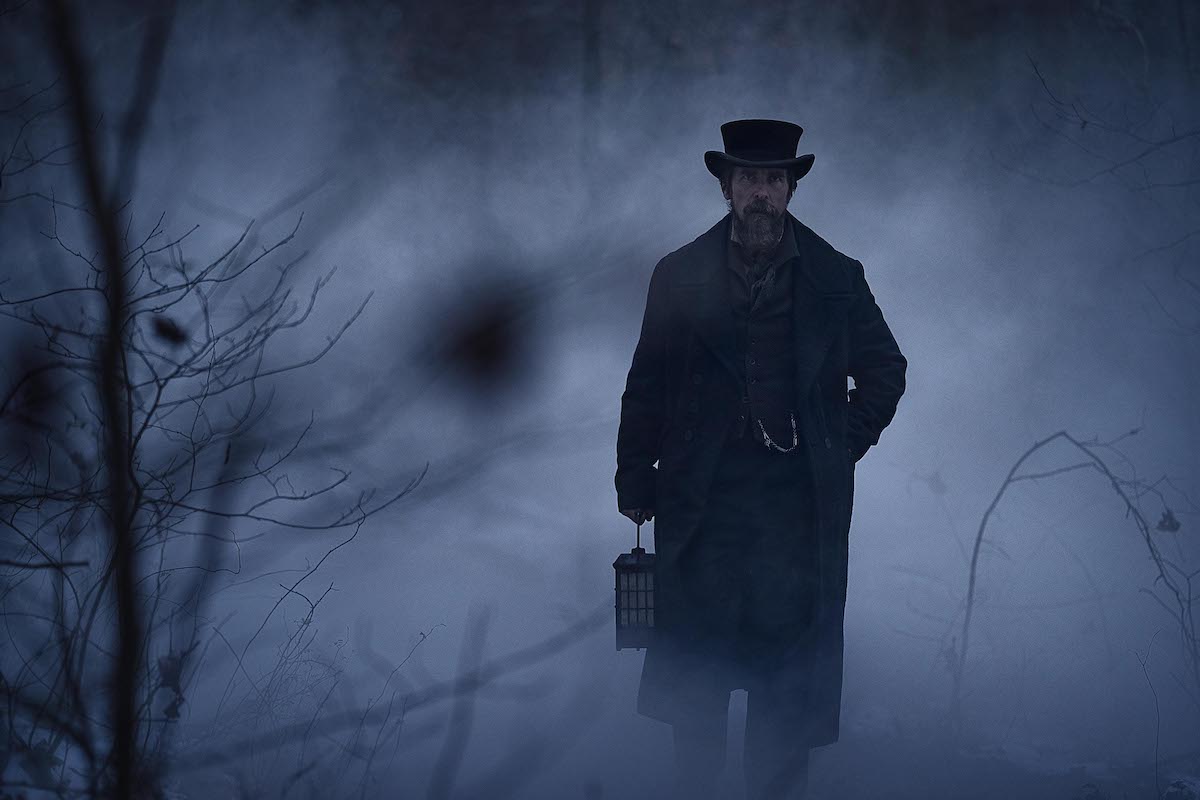
Trying to discern Netflix's release strategy on any given film is about as productive an exercise as shoveling your sidewalk while it's still snowing. You'll never really get anywhere, and you'll just feel bad about yourself for trying. So far this year, the streamer/film studio has confounded moviegoers by keeping many of their best films from movie theaters all together, while sending some to cinemas for a week or two only to remove them entirely for weeks in advance of their debut on the platform (ahem, Glass Onion). One of the behemoth's last releases of 2022 is getting a similarly confusing release, one that will ultimately risk what should be a strong showing for The Pale Blue Eye, a macabre period drama and mystery based on the 2003 book by Louis Bayard that's a gripping, emotional whodunit perfect for gray rainy days and moody, chilly evenings.
Though fictional, The Pale Blue Eye plays like a true-crime drama with none other than Edgar Allan Poe (a striking Harry Melling) at its center, a young man enrolled at West Point military school in the 1830s (and well before his own work as a writer of all things goth and grim). Poe is drawn into a murder mystery when a fellow cadet is discovered dead with, of all things, his heart skillfully removed from his body. An investigator called in to solve the case, Augustus Landor (Christian Bale), enlists Poe to help him get to the bottom of the mystery, as he's faced with the institution's code of silence everywhere else he looks. The cast is rounded out by the likes of Tobey Jones, Lucy Boynton, Gillian Anderson, Timothy Spall and Robert Duvall in roles that serve to both stymie and bolster Landor's work.
Directed (and adapted for the screen) by Scott Cooper (Antlers, Crazy Heart), The Pale Blue Eye is a slow burn, one that only reveals its layers of complexity with time and patience. Bale is restrained and intense as Landor, a man who is clearly struggling, though we aren't clued into with what exactly (until we are). The most captivating in an already impressive ensemble is Melling, who does an uncanny Poe, a wide-eyed young man with hints of who he is going to become. In time, the mystery at the heart of the film begins to come into focus, leading to a fiery (literally and figuratively) scene that, for lack of a better (and more complimentary) way to put it, feels like something out of a Poe story. And just when Cooper has us on the edge of our seats with a resolution that satisfies so many of our lingering questions, he reveals an ace up his sleeve that I, for one, didn't see coming.
Through all its twists and turns, The Pale Blue Eye stays true to its intentions, weaving its mystery so skillfully that Cooper and crew ensure there's entertainment, dark and gloomy as it is, in the journey itself and not just the destination. Those who've read the original book might have more to say about the adaptation, and the reveal(s) itself might not pack as much of a punch if you see them coming (please, don't be the person who figures it out before the film does—just enjoy the ride!). But even those more familiar with the story and its mystery will find plenty to enjoy in the film, bringing to life the characters, settings and scenes from the page.
The Pale Blue Eye deserves a much more robust release than Netflix has opted to give it; but if you're in Chicago, you can spend a chilly January evening catching it on the big screen at Music Box Theatre before it streams on Netflix starting January 6.
Did you enjoy this post? Please consider supporting Third Coast Review’s arts and culture coverage by making a donation. Choose the amount that works best for you, and know how much we appreciate your support!
